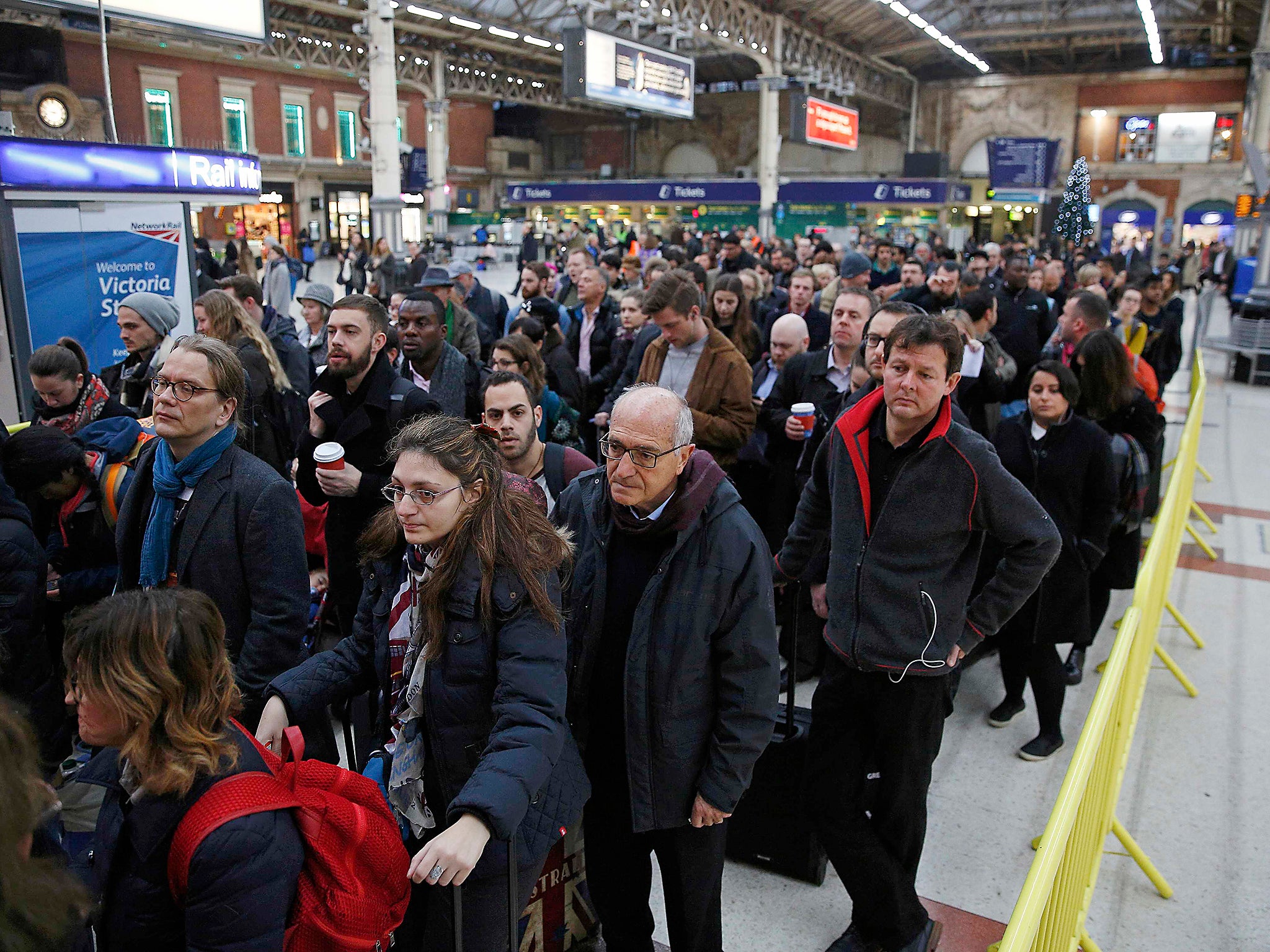The passenger pays too big a price for the future of our railways
Regular rail users are right to question whether such a significant rise in fares can be justified at a time when services have become more unreliable

Commuters in the south east no doubt choked on their cornflakes this morning, as they started their new year with the news that rail fares were set to rise by an average of 2.3 per cent. A journey on a British train already costs the passenger more than anywhere else in Europe. It is speculated, though not proved, that our trains may in fact be the most expensive in the world. And now, it’s more expensive still.
This latest price hike could not have come at a more unwelcome time for rail passengers. Services between London and the south coast have been disrupted for months due to the ongoing industrial crisis between the rail unions and the management of Southern rail over the introduction of driver-only operation. Though the move will not cost jobs, the unions have spotted that this may be their last chance for a prolonged and aggressive fight, and are bedded in for the long-term. Despite fury among commuters, some of whom have even lost jobs due to being unable to guarantee their own arrival at work in the morning, the dispute shows no sign of coming to a close.
A further week-long walkout is expected to commence next Monday, and the Government is not indicating that it has the appetite to intervene. No wonder; too many other rail franchises are contracted on the basis that the move to driver-only operation must happen. The Government needs Southern to win this fight, but the lives and livelihoods of British citizens are proving collateral damage in this high-stakes industrial battle.
Regular rail users are right to question whether such a significant rise in fares can be justified at a time when services have become more unreliable. According to research by the Labour Party, average fares for an annual season ticket have risen by £2,100 in the short period since the Conservatives came into office in 2010. Some single journey fares have faced a 40 per cent rise in a decade. Even allowing for inflation, there has been an average rise of 25 per cent since the mid-1990s.
One of the reasons for this is the expectation upon the passenger to contribute to the running costs of the rail service and investment in its future. Under British Rail, the government heavily contributed to the cost of the network. Now the passenger is expected to shoulder 70 per cent of the burden.
The Government justified the rise by claiming the additional income was being directed to the biggest rail modernisation programme for a century. That, too, is controversial, given the widespread opposition to plans for the High Speed 2 rail line, and the more tentative proposals for HS3 (which may not survive now that George Osborne is no longer in the Treasury).
Given the urgency of challenge of facing climate change, investing in our train networks and building new, modern lines for the future are not just essential to keep the commuters happy but also to boost the economy while reducing our carbon emissions. But it is too much – particularly while the disruption that the process of modernisation causes is so fresh in the mind – to expect such a large proportion of this investment to come out of the pocket of the ordinary passenger.
Investment in major infrastructure such as roads, rail and housing (another area where successive governments have fallen short, leaving citizens to pick up the extortionate tab) is a national priority. Finding the funding for that should not rely on the consumer spending habits of the customers of those services. The Government has demonstrated commitment to the future of the rail industry, but too little respect for the long-suffering commuters bearing the brunt of the pace of change on the rails. True fare freezes are a political possibility – the Mayor of London has committed to one until 2020, and the Transport for London network provides some of the most reliable services in the country. That, in itself, should prove that it is possible to serve our commuters better.
Join our commenting forum
Join thought-provoking conversations, follow other Independent readers and see their replies
Comments
Bookmark popover
Removed from bookmarks